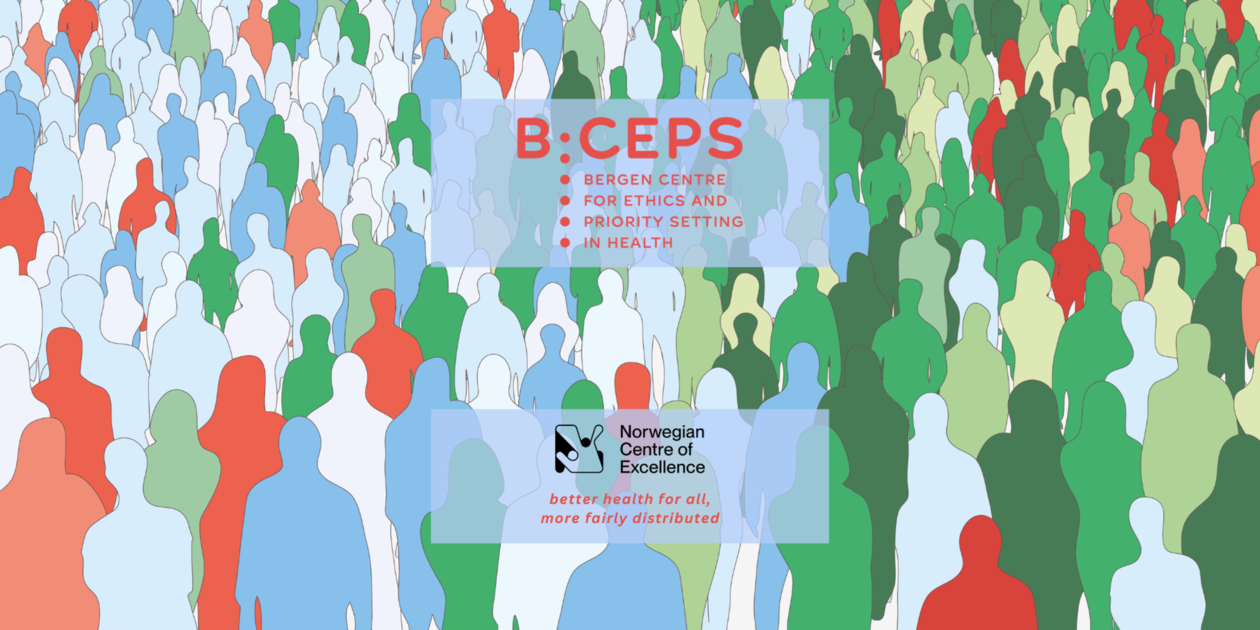Equity and fairness in health - an applied approach
In this course, participants will learn how to evaluate equity in access to health services and fairness in distributions of health outcomes, and to integrate tools for equity concerns and health maximization.

Main content
Course leader
Kjell Arne Johansson
Professor, Department of Global Public Health and Primary Care, University of Bergen (UiB), and Deputy Director of Bergen Centre for Ethics and Priority Setting (BCEPS) at UiB.
Co-leader
Mizan Kiros Mirutse, Postdoctoral Fellow, Bergen Centre for Ethics and Priority Setting (BCEPS), University of Bergen.
Course description
The participants will learn how to evaluate equity in access to health services and fairness in distributions of health outcomes, and to integrate tools for equity concerns and health maximization. The course is divided into two parts:
Part 1 will cover theoretical concepts of ethics, equity and fairness as well as health maximization, and how they are applied in global and national health care priority setting.
Part 2 will cover hands-on exercises on burden of disease, cost-effectiveness, and use of FairChoices DCP Analytic Tool.
The first days are largely theoretical and consists of a mixture of lectures breakout sessions and discussions on the main topics described above. Students are required to participate in group work on assigned topics. This includes daily student active teaching exercises, with alternating group compositions and presentation of results for the class.
The remaining days are combinations of theory and practice, and students will work through exercises on their own laptops on a “learning by doing” principle.
Learning outcomes
After the course, the student should have acquired the following:
Knowledge:
- able to explain and justify distribution of scarce resources according to utilitarian, egalitarian and prioritarian principles, and how they apply to health.
- able to describe key principles and criteria of health priority setting
- knows key global policy responses to health challenges by international organizations and countries such as UK, Norway, Thailand, Pakistan, Ethiopia and Tanzania.
- understands the difference between data on average population coverage for a health service, and data on distribution of coverage disaggregated according to key determinants
- understands basic ideas of transparent, deliberative processes for priority setting
- understands the role of severity of disease and its relation to cost-effectiveness
Skills:
- can identify and provide arguments against substantial unfairness in health and the determinants of health
- knows how to analyze and present equity-efficiency trade-offs in health
- can explore and use the FairChoices DCP Analytic Tool
Core competencies:
- is aware that trade-offs in health care priority setting are value based
- is able to evaluate and critically analyze health interventions according to principles of health maximization and fair distribution
- is able to recommend key elements of transparent, deliberative processes for priority setting
Reading list
TBA
Credits
Participation at the BSRS is credited under the European Credit Transfer System (ECTS). Participants submitting an essay, in a form of a publishable manuscript of 10-20 pages, after the end of the summer school will receive 10 ECTS. Deadline for submission will be decided by your course leader.
It is also possible to participate without producing an essay. This will give you 5 ECTS. In order to receive credits, we expect full participation in the course-specific modules, plenary events and roundtables.
Course leader
Kjell Arne Johansson is a professor of medical ethics and the philosophy of science at Bergen Centre for Ethics and Priority Setting (BCEPS) at the Department of Global Public Health and Primary Care. He also has a clinical background as a physician in the field of drug addiction and obstetrics and gynaecology at Haukeland University Hospital.
Johansson is principal investigator for two BCEPS work packages (Fair Choices: Disease Control Priorities Analytic Tool and Universal Health Care Zanzibar) and is project leader for a 5-year project on "Equity and financial household impact in randomised controlled trials, implementation research and cohort studies in India" (EQUIFINANCE). He is also the co-leader of the Universal Health Coverage (UHC) Zanzibar project.
Johansson has extensive experience in population ethics research, where he has been engaged in developing innovative methods for fair priority setting in global health and applying them to low and high-income country settings. His key areas of expertise include population ethics and distributive implications of health care, including economic evaluations, equality of health outcomes and financial risk protection.
Much of his research focuses on applied equity impact modelling, seeking to understand the broader implications of improved health care coverage by using mathematical population models. In particular, he has contributed to three equity impact methods: Extended Cost Effectiveness Analysis (ECEA), severity of disease analysis and Distributional Cost Effectiveness Analysis (DCEA). He is currently president of the International Society for Priority Setting in Health (ISPH).
